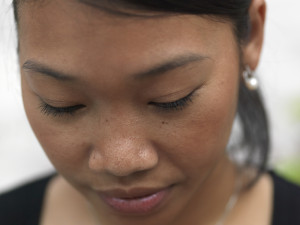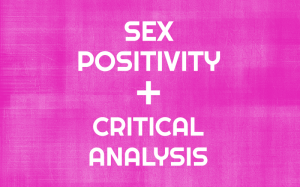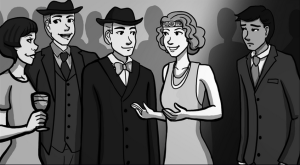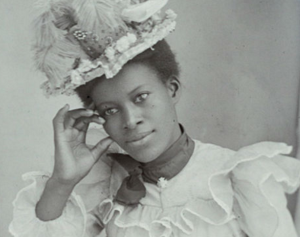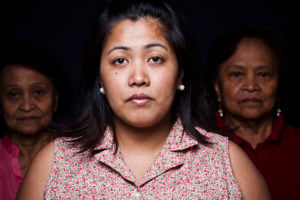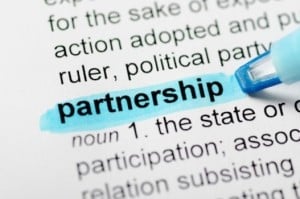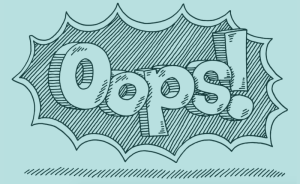(Content Warning: Description and discussion of miscarriage and rape)
I was almost too afraid to look down into my hands because I knew what was there.
I was sitting on the floor of my bedroom. I had been lying in the fetal position for a while because I had awful cramps when I began to feel a sensation in my vaginal area.
A few weeks before, I found out that I was pregnant after being raped. I was twelve years old.
I was terrified, but in my confused mind, I thought it was some kind of gift, a consolation prize of sorts. There was a big part of me that was excited to have a child that I could hold and love.
I looked down at my hands to find them full of blood.
I cried for a few minutes. And a year passed before I let myself cry about it again.
I initially avoided thinking about that first miscarriage (I have had three total) because I wasn’t emotionally equipped to face up to the fact that it happened. Acknowledging the miscarriage made it feel all the more real, and that feeling terrified me. But eventually, all that avoidance and denial caught up with me.
The truth of the matter is that miscarriages – no matter how or why they came about – can be really traumatizing.
They can weigh heavily on your soul, even if you choose to consciously pretend it didn’t happen.
After a while, I realized pretending I never had a miscarriage wasn’t going to erase my pain. I felt a stab in my heart whenever I saw baby clothes in a department store, or when I watched movies about pregnancy, birth, and parenthood. A lump in my throat would form whenever I saw a baby.
I eventually came to the conclusion that I needed to acknowledge my miscarriage and the pain that came with it.
And when I did, I realized that I needed to treat myself with love, care, and compassion in order to heal.
Because miscarriage can be an incredibly difficult event to deal with, it’s incredibly important that you practice self-care if it happens to you.
But it’s hard to know where to begin to take care of yourself, especially after experiencing something that is so stigmatized in our society.
So here are a few pointers to help you practice self-love after a miscarriage.
1. Take Care of Your Immediate Physical Needs
Sometimes people are so distraught after a miscarriage, they forget to seek medical attention – and understandably so.
But it’s absolutely necessary to take care of your immediate health needs as soon as possible.
While medical attention isn’t always necessary for miscarriages that happen early on in a pregnancy, it’s still best to consult a medical practitioner to confirm your miscarriage and to ensure that you don’t need any treatment.
Plenty of people avoid medical care for fear of the stigma relating to miscarriage: They’re afraid they will be shamed or judged for having a miscarriage, and this is particularly true for young people and unmarried people.
Many countries have laws protecting people from being denied health care or being discriminated against by healthcare practitioners. Check out the laws in your country to find out what rights you have.
Unfortunately, however, being informed of your rights doesn’t mean that nobody will ever violate those rights. What it does mean is that you’re better able to stand up for yourself and hold people accountable if they do mistreat you.
It might be helpful to go to a clinic that specializes in reproductive health, as the staff is more likely to be trained to be sensitive to issues surrounding miscarriage.
Ultimately, your body is a part of you, and you deserve to be cared for, healed, and nurtured.
2. Pay Attention to What You’re Thinking and Feeling
This might seem pretty obvious, but it’s something we often forget: In order to heal from a trauma, we have to acknowledge the trauma and how it affects us.
But figuring out how it affects you can be a really difficult task, partially because acknowledging negative feelings can be a painful experience in itself.
For this reason, it’s incredibly important that we try to remain mindful of how we’re reacting to the experience. When we pay attention to what we’re thinking and feeling, we’re in a better position to take care of ourselves.
It could be helpful to express these feelings by creating visual art, like writing poetry, keeping a journal, or speaking. Art can be an amazing way of reflecting and healing.
Remember that it’s not important for your art to be “good” (whatever that means) – it just needs to be good for you!
In my healing process, I stuck to a very simple method when dealing with my feelings. I would notice the feeling, record the feeling, and express the feeling – usually through writing. Obviously this might not work for everyone, but it might be worth a shot for you to try it out.
We have so few narratives concerning miscarriage that we don’t get to see that there are a number of diverse responses to the experience. As a result, we think there is a specific way one should feel after a miscarriage, and for that reason, we police our feelings if they don’t reflect common narratives.
But policing our feelings makes it all the more difficult for us to deal with them.
Something important to remember is that there is no wrong way to heal – the process is different for everyone. Similarly, there is no ‘right’ way to feel after a miscarriage because it’s such a personal experience.
Whether you feel numb, sad, angry, relieved, or genuinely fine (or a mix of a whole lot of different emotions), it’s important that you allow yourself to feel that way.
3. (Re)connect with Your Body and Nourish It with Love
After a person goes through a physically traumatic event, it can feel difficult for them to feel connected to their body.
After my miscarriages, I felt like my body had betrayed me. I felt like there was something wrong with me.
I hated my body for being unable to carry my pregnancy to term.
I felt like I couldn’t control my body, as if it wasn’t my body at all. I looked at myself in the mirror, and I struggled to recognize myself.
Not everyone feels this way after a miscarriage, but if you do, it’s important to try to reconnect with your body and treat it with care.
Some forms of gentle exercise could help. For example, stretching, swimming, walking, yoga, or dancing could help you bridge that physical gap between yourself and your body.
Exercise isn’t always an option for everyone. There are other ways for us to reconnect with our bodies.
Let your body feel good sensations. Have a nice, hot shower. Wear comfy clothes. Cuddle up in cozy blankets. If you’re comfortable with it, masturbate.
Remind yourself that your body is capable of experiencing beauty, even after going through something traumatic.
A friend of mine used to do spa-days with herself in order to feel more connected with her body. For most of us, paying for a day at the spa isn’t an option, but doing it yourself can be a fun alternative. She would have a bubble bath, do her nails, apply a nice moisturizer, put on a home-made facemask, and watch series to unwind.
There is a beautiful Nayyirah Waheed poem that reads, “Apologize to your body. Maybe, that’s where healing begins.”
It might sound cliché, but your relationship with your body is a lifelong one, and because of that, it only makes sense to try to make peace with it in whatever ways we can.
4. Reach Out to Loved Ones
Often, asking people for help is demonized in our society. We sometimes avoid asking for help – even if we really need it – because we’re afraid of seeming weak or simply because we don’t know how to ask for help.
But if you need help, ask for it. Ask for support from the ones you love.
This is easier said than done, though. If it’s tough for you to ask for help, remind yourself that asking for help doesn’t mean you’re weak – in fact, it means you’re trying to take care of yourself, which is an act of strength.
Remind yourself that if your loved ones turned to you for help, you would help them however you can – you wouldn’t judge them harshly as you’re judging yourself.
It can be difficult for your loved ones to figure out how to support you after a miscarriage, so be upfront with them about what you need. You might benefit from some help running errands, someone to talk to, or someone to hang out with to get your mind off things.
And if you don’t know what you need, tell them that!
Even if you never actually have to rely on their help, knowing that they’re there can make all the difference.
5. If You Need To, Allow Yourself Time and Space to Mourn
I feel really weird about mourning my miscarriages because I don’t feel like they were ever real people. I’m pro-choice, and I don’t think of fetuses as babies.
At the same time, I feel like I lost a person who was very dear to me.
I recently began rethinking about what it is to mourn. Mourning can include celebrating memories you’ve had with someone, as well as grieving over having lost the opportunity to spend time with them in future.
Instead of mourning a child, I mourn my pregnancy. I mourn the opportunities I never got to have. I mourn the fact that I never got to be a parent, to hold my baby’s hand, to see them become a person.
Whether you view a fetus as a person or not, it can be necessary to let yourself mourn your pregnancy. Mourning can be cathartic and healing, and thus can be an act of self-care.
The process or act of mourning can be different for different people. Maybe you need to take time off from work, school or other commitments. You might want to have some kind of funeral, or create a ritual to practice on the due date. These events could help you express your feelings in a safe and caring space.
6. Consider Finding Help through Counseling or a Support Group
Counseling and therapy is not for everyone, and not everyone has access to it.
But if you can, it might be helpful to consider seeing a counselor. They’re likely to be better equipped to help you through the processes of grieving and healing.
Support groups, including online support groups, can be really useful, too. I found it really cathartic to seek support through online Facebook groups for people who had miscarried, and to participate in various online forums about miscarriage.
While there’s no shame in healing in isolation, community can be an amazing tool for healing. Support groups can help you harness a sense of community in a time where you might feel very alone.
These communities create spaces where you’re encouraged to focus on the specific feelings that surround miscarriage. In these spaces, you can receive empathy from those who can relate to how you feel, while drawing on their strength and wisdom.
Community creates an opportunity for mutual nourishment, meaning that you’re able to help others heal while they help you. This is, in itself, a beautiful act as it encourages people to be compassionate and gentle with one another as well as with themselves.
In a society where miscarriage is stigmatized, these communities are a radical tool in fighting against this stigma and silence.
***
I’ve had three heartbreaking miscarriages.
Healing from these events hasn’t been easy. It’s a hard, tumultuous journey. Sometimes it feels like a rollercoaster ride, and sometimes it feels like I’m stuck on a raft in a stagnant lake, getting nowhere slowly.
But there is always hope. Every day I commit to helping myself heal. That commitment comes from a place of self-love.
Practicing self-care after a miscarriage can be incredibly tough, but also incredibly necessary.
I hope that this piece has given you some ideas on how to take care of yourself, and I wish you all the best on your journey.
[do_widget id=’text-101′]
Sian Ferguson is a Contributing Writer at Everyday Feminism and a queer, polyamorous, South African feminist who is currently studying towards a Bachelor of Arts majoring in English and Anthropology. Originally from Cape Town, she now studies at Rhodes University in Grahamstown, where she works as vice-chair of the Gender Action Project. She has been featured as a guest writer on websites such as Women24 and Foxy Box, while also writing for her personal blog. Follow her on Twitter @sianfergs. Read her articles here.
Search our 3000+ articles!
Read our articles about:
Our online racial justice training
Used by hundreds of universities, non-profits, and businesses.
Click to learn more


